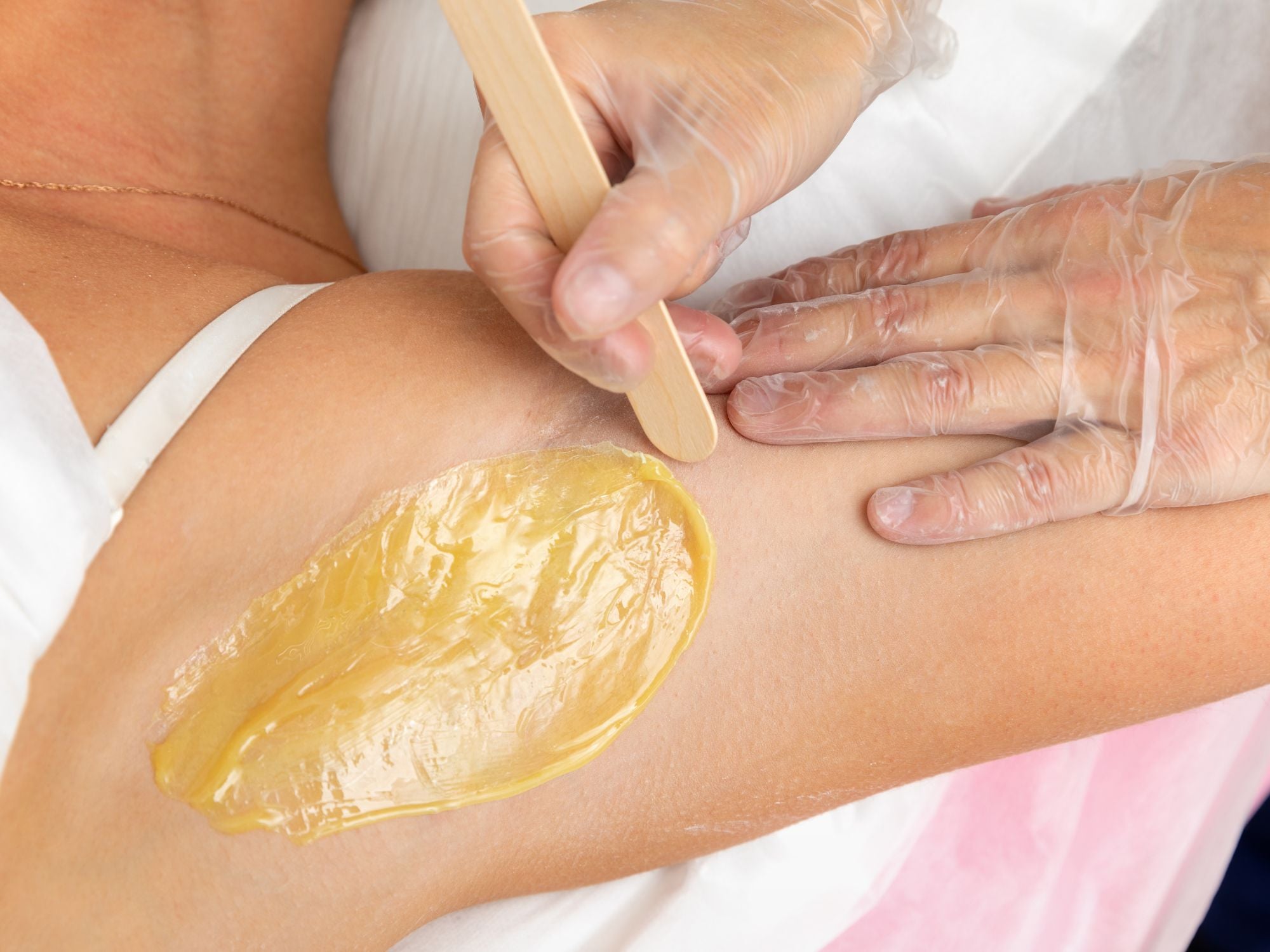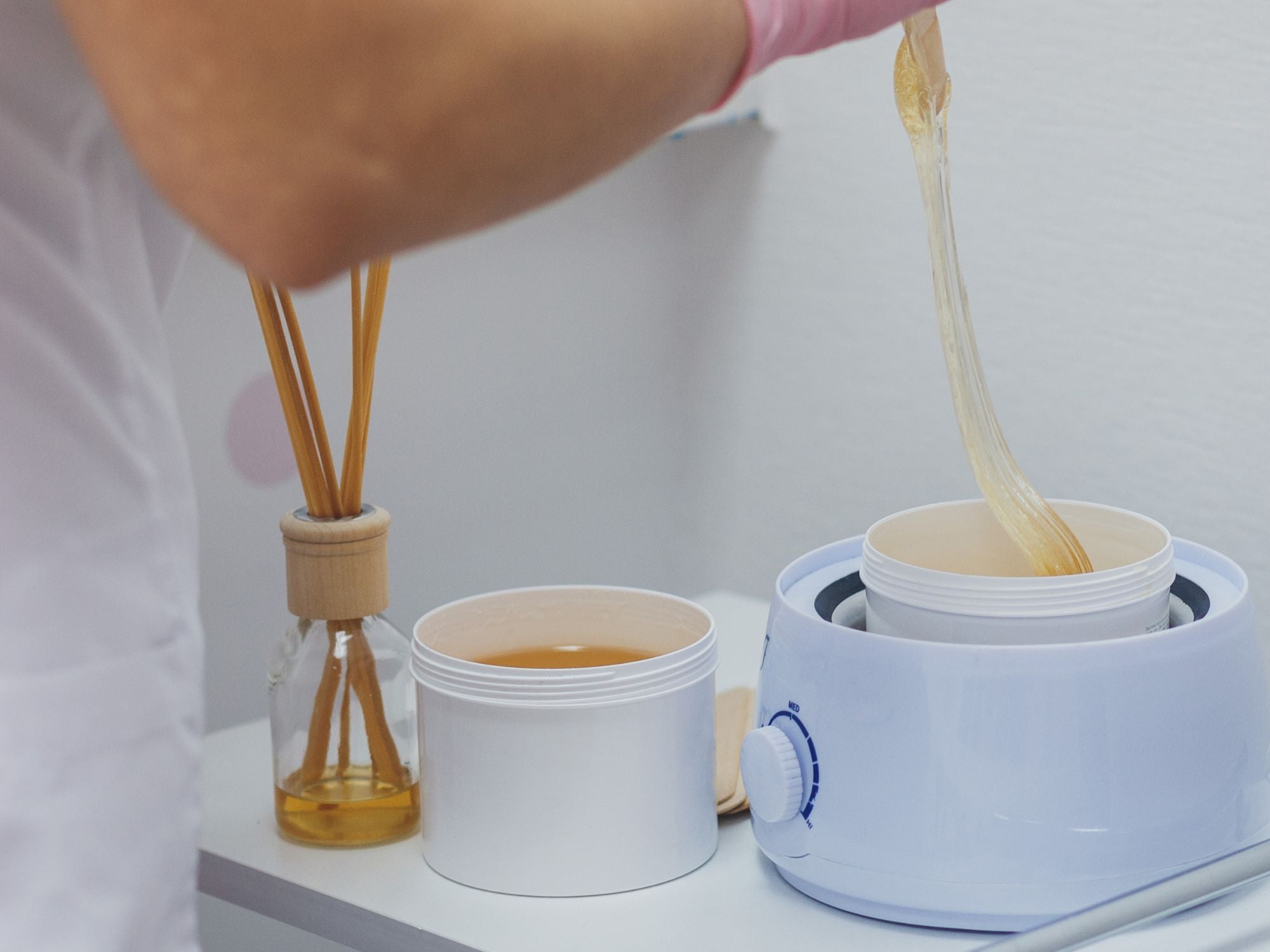
Share:
Getting a wax is a popularly hair removal strategy in today's day and age. In fact, according to Jama Dermatology, over 4% of the USA population choosing waxing as their preferred method. Although 4% does not seem like a large cohort of people it's well over 6.7M women in the United States alone.
Like all hair removal options there are potential drawbacks. In this article we will showcase the potential drawbacks and ways you can deal with them.
Dealing With Ripped Skin After Waxing
It's rare to occur, but tearing or ripping of the skin can occur with waxing. This is often caused by dry or sensitive skin. If you are on a medical treatment for your skin it may lead to tearing of the top layer of skin. For instance those on accutane are told not to get waxed.
"It’s such a potent drug, and the sensitivities that come with it, waxing while you’re going through the treatment will cause your skin to lift. Lifting of the top layer of skin will cause a wound and may leave brown spots". - Karyn O'Hara Professional Esthetician
If you are on accutane it's recommend not to do any skin or treatment that can be abrasive, as the skins barrier is weakened.

How To Treat Ripped Skin
Depending on the severity of the wound you should contact a medical professional. If you have a minor skin tear you can follow the following steps:
- Wash your hands.
- Control the bleeding.
- Gently clean the wound with warm clean water.
- Gently pat dry with a clean towel.
- If a skin flap is still attached, try to replace it by gently rolling the skin back over the wound. Do not cut the skin flap off.
- Cover the wound with a clean, non-stick pad.
- Use a stockinette instead of adhesive dressings or tapes.
If your skin tears during a wax it's likely a sign you need to understand what caused the tear. For some it may be due to a weakened skin barrier and for others it could be a misuse of wax itself.

Preparation for a Safe Bikini Wax
To ensure you have a safe and successful bikini wax we have some key steps we recommend you take. Some involved finding a professional esthetician, while others involve probably skincare preparation.
- Find a licensed Esthetician who specializes in waxing
- Exfoliate your bikini line regularly
- Moisturize your bikini line daily
- Ensure your hair is at 1/4" long prior to a wax
Find a licensed Esthetician who specializes in waxing
It's important to find a licensed Esthetician you trust with your most intimate areas. Getting a wax is a very personal service and being comfortable is important. Additionally, a licensed Esthetician will ask various questions to ensure you are a suitable subject for a wax and that your skin won't tear.
Exfoliate your bikini line regularly
By exfoliating your bikini line 3-4 times a week you will help soften your pubic hair and remove dead skin cells from the skin beneath. This rigorous routine is what leads to the hairs being removed without as much friction, a key reason you will get fewer irritations after your bikini wax.
Moisturize your bikini daily
If you aren't exfoliating or moisturizing your bikini line you will be receptive to dry and flaky skin. Similar to our scalp and dandruff you're more likely to have this dry, flaky reaction under your pubic hair. By using a daily oil to soften and soothe your bikini line you'll make the skin smooth, the hairs softer and have a much better experience waxing.
About Waxing
-
Waxing is a popular method of removing unwanted body hair.
-
Waxing can be done on almost any part of the body, including the face, legs, arms, underarms, and bikini line.
-
Waxing is considered to be a more effective method of hair removal than shaving, as it removes the hair from the root.
-
Waxing can be painful, especially in sensitive areas, but the results last longer than shaving.

Ensure your hair is at 1/4" long prior to a wax
Lastly, ensure you grow your hair to 1/4" before your brazilian wax. This is the optimal height for a bikini wax to occur. Shorter may not allow the hairs to catch and longer isn't optimal.
Tearing your skin after a brazilian wax isn't uncommon, but definitely something you don't want to occur. To prevent a tear or an uncomfortable experience after your wax please follow the steps above. For recommended products you can find the recommended waxing routine here.
- Previous article How to Shave your Armpits
- Next article Pubic Hair Oil vs Ingrown Hair Oil
About the Author
Rachel Kerr
Rachel is the Director of Brand & Marketing at Bushbalm Skincare.





































